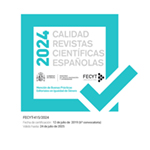“Freedom from Jobs” or learning to love to labor? Diversity advocacy and working imaginaries in Open Technology Projects
Christina Dunbar-Hester
Reviewer A:
Please, comment on the most relevant aspects (positive points and areas to improve) of the reviewed article.
A very nuanced analysis of diversity initiatives in the open source movement and the complexity of the motivations of those involved.
Would you suggest any changes or make any recommendations to improve the quality of the article?
The article stands well on its own. But to make it richer several areas could be explored more deeply.
There is a radical epistemological argument for diversity which a wide range of people ascribe to, from anarchist-feminist revolutionaries to pragmatic fans of literature. Much of it is based on actual computer programming practices (as understood by the CPSR net during the 1980s to 2000s) and grass-roots second wave feminist activist praxis and postmodern feminist studies of science (in Sandra Harding's cagtegorization) but it is echoed in the work of Colin Ward, Bakhtin, Ted Nelson and many others.
The link between diversity in software production and an even more insidious penetration of for-profit digitized social engineering (as with Google) is disturbing and seems a crucial area for further analysis.
The claims by a number of people (Sherry Turkle most famously) that there are two fundamental styles of programming that, while not absolutely gendered, are certainly deeply shaped by gender assumptions and are followed by quite different proportions of people who identify male and female, seems quite relevant here. Along with the sexist myth that men are just "better" programmers (which is often refuted experimentally) the idea that women tend to program in a "cooperative" way and most men program in a "I am the master of this microworld" approach has to play a role in how some people address the issue of diversity and I'd love to read the author's analysis of this.
Recommendation: Accept.
Reviewer B:
Please, comment on the most relevant aspects (positive points and areas to improve) of the reviewed article.
It is an interesting work with an original perspective.
Would you suggest any changes or make any recommendations to improve the quality of the article?
More analysis and more data. I agree to include visual material like pictures, maybe the text needs more analysis of these.
Recommendation: Revisions required
Reviewer C:
Please, comment on the most relevant aspects (positive points and areas to improve) of the reviewed article.
This article makes very useful observations about the intersections of work, identity, and capital accumulation. It does the important job of articulating the limits of simple representation as a goal for social justice. It is a nice addition to the “just add women and stir” critique of well-meaning liberal activism because it takes an explicitly intersectional approach to the problem. I especially liked the inclusion of Eubanks’ work as a means of illustrating how diversity rhetoric is delimited to a very specific kind of engagement with technology.
I found these sentences to be the most important however:
“And yet it matters because at the core of these efforts is a belief in technology as a site of political potential. Geeks, especially politicized geeks, often want to build tools to do good (Wisnioski, 2012). Instead, the vocabulary of political imaginary in diversity initiatives largely recapitulates notions of of expanding economic opportunity and configuring underrepresented people as tech workers, especially for corporations that ultimately hope to capture a diverse consumer market.”
I really wanted more of this “so what?” discussion and I did not find that it was sufficiently signposted earlier in the article. The stakes of this research, in my mind, are important enough to merit inclusion in the introduction and in the abstract. I immediately understood the general argument since it was so well articulated upfront but there is little hint that the author will eventually get there. Instead I expect the argument to end at the “vexed”-ness of these sites.
Would you suggest any changes or make any recommendations to improve the quality of the article?
In line with my only suggestions for improvement above, I would encourage the author to say more about the relationship between technology and diversity earlier on. Particularly, discuss for about 200 words the double-edged nature of diversity. This would be easy to include just above or below the first reference to Ahmed. In addition there are a few superficial. mechanical changes to the text that might need addressing:
-- The first mention of F/OSS is not spelled out.
-- In keeping with the author guidelines that state "use of notes be kept to a minimum" I suggest most of the footnotes be incorporated into the main body of the article or deleted. I recommend deleting footnotes 1, 3, and 4 as they largely repeat an idea that is already found in the body of the article and incorporating the rest. I also believe making footnote 6 an inline citation would be closer to what the guidelines require.
-- On page 9 of the review copy the word "as" is repeated in the first paragraph
—This sentence seems to be missing a word: “As a white, middle-class, highly educated and literate [person] who teaches in a university in North America, these communities and their conversations are relatively accessible to me and hospitable to my presence.”
— on page 19 in the 3rd paragraph the word “of” is repeated.
Recommendation: Accept.
The text included important modifications before publication












